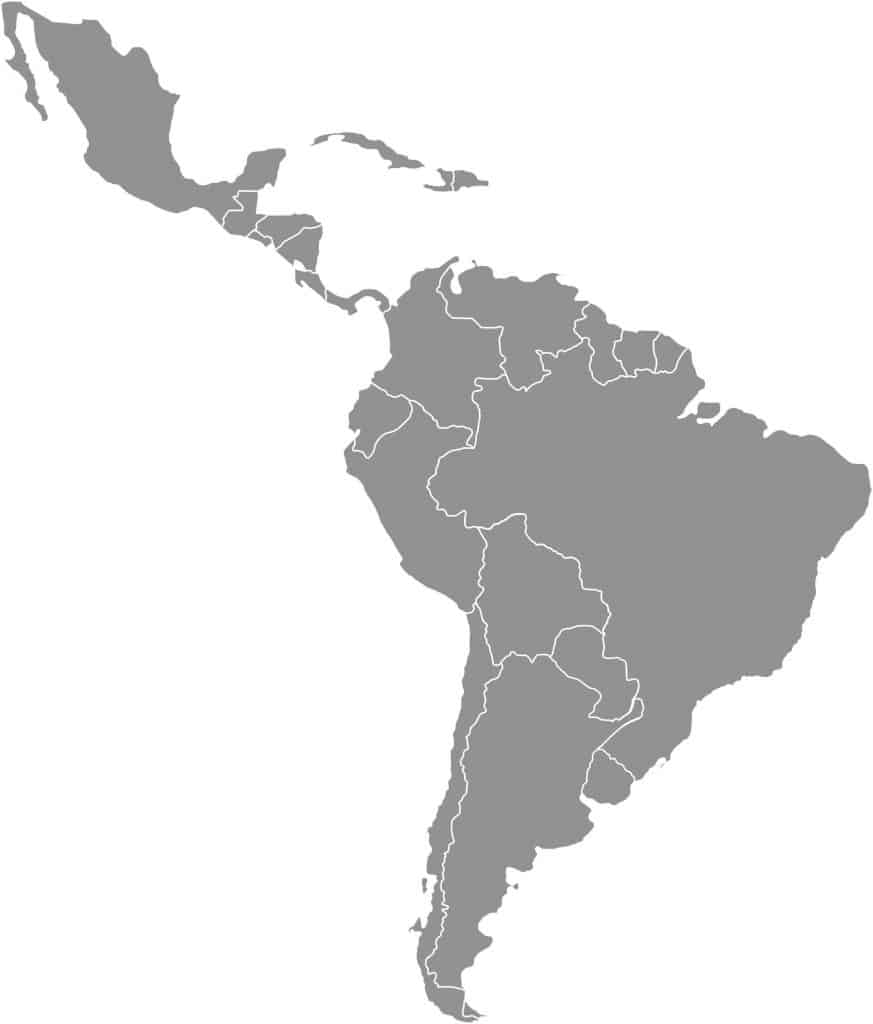Argentina had to force its way into medical cannabis with the help of groups like Mama Cultiva. Now, Argentina is going full force with a new hemp regulatory law which increase production for both the domestic and export markets. Read on to find out more.
Argentina and the new hemp law
On January 25th, an announcement came out by Argentina’s Sergio Massa, Carla Vizzotti, Anibal Fernandez, and Daniel Filmus. The Finance Minister, Minister of Health, Minister of Security, and Minister of Science, respectively. The Ministers announced the implementation of the Regulatory Agency for the Hemp and Medical Cannabis Industry (ARICCAME), with the start of its first working group immediately.
The goal of the agency, which will be a decentralized organization residing under the Ministry of Economy, is to promote the cannabis industry in general, by way of opening or widening, cannabis markets in the country for several different purposes. These include: the already-existent medical cannabis industry, the introduction of cannabinoids in food and cosmetics, cannabinoid foods for the veterinary world, and the industrial hemp industry.
The agency also has a couple more objectives moving forward. For one, its wants to start using hemp and its derivatives not just for food, but also for construction materials, textiles, and bioplastics. Second, the agency is geared toward the promotion of research, improving technological progress with cannabinoids, and improving conditions within the country for these industries to thrive; by way of clear rules, with no legal ambiguity. The idea is to really normalize this industry for the public going forward.
Cool that you stopped by. Check out our Cannadelics Weekly Newsletter which provides updates direct to your email; and also comes with offers for cannabis buds, vapes and paraphernalia, edibles, smoking devices, cannabinoid compounds (including HHC), and a huge selection more. Lets all get stoned responsibly!
According to law firm Allende & Brea out of Buenos Aires, the agency will oversee the implementation of the new Argentina hemp law, including domestic marketing within Argentina; while also expanding out the international market by authorizing imports and exports. It will regulate all aspects of production and commercialization, including seeds and derivatives, for the medical spectrum. Licenses can be obtained by companies which are in compliance with all the requirements set out in the 2022 legislation.
How is this new Argentina hemp law expected to affect the country?
According to the original announcement, Economy Minister Sergio Massa had this to say: “This opens the door for Argentina to start a new path in terms of industrial exports, on the basis of huge global demand.” And that “Putting the agency into operation means starting a new industry in Argentina. An industry that has 25,000 different applications. An industry that will allow us to add value in an innumerable number of economic sectors in Argentina and the world.”
The first president to preside over this new agency, is Francisco Echarren, the standing mayor of the Buenos Aires town of Castelli. Dr. Marcelo Morante, a cannabis activist, is set to be the first vice-president of the agency. He is currently in charge of the registry of medicinal users under the Ministry of Health. Said Echarren:
“We have a huge challenge ahead of us not only getting a new industry on its feet, but giving millions of Argentines access to products that improve quality of life.”
Realistically, Argentina is getting in on the cannabis game a bit late with this hemp law. Other countries have already built up their export markets, leaving the South American country to play a game of catch-up. Considering issues already weighing down the medical cannabis industry like mass layoffs globally, particularly in cultivation centers; how Argentina will do, is hard to say right now.
How much does the country project it will make out of this? Its thought this new move could potentially earn the country more than $500 million in sales, while also creating 10,000 jobs. This according to Argentina national news agency Télam.

Argentina’s road to a new cannabis market
Much like other countries, Argentina has forged a road for many years to get where it is now. The very beginning was a decriminalization in 2009 for small amounts of cannabis, though nothing specific was set in terms of amounts. Thing started in earnest in 2017 when medical cannabis was originally legalized. At the time, there were too many roadblocks, like unclear regulation, issues with production, and the lack of ability for self-cultivation.
This is where Mama Cultiva came in. The grassroots organization that fights for medical cannabis rights, was one of the instrumental factors in pushing for reform to the not-that-great 2017 medical cannabis law. In 2020 this came through, and included the ability for pharmacies to make and give out cannabis magistral preparations (preparations made specifically by the pharmacist which are not standardized medications).
Whereas the 2017 law was restrictive in who was able to access these medications, the 2020 decree opened the door to nearly any relevant ailment. And it did include a provision for home-cultivation, though with no specifics attached. The law mandated insurance companies to cover marijuana medications so long as patients have a prescription.
In the spring of 2022, the government did a couple more things. First in April, the Ministry of Health published an update to rules regarding licensing for medical cannabis, which allow non-profits to obtain licenses. Then in May 2022, yet another update was made via the Regulatory Framework for the Development of the Medical Cannabis and Industrial Hemp Industry law. This update built a framework for an even better medical cannabis industry in Argentina, with the inclusion of laws to increase global exports.
This was all followed up by a couple occurrences on the cultivation front. In July, due to a Supreme Court ruling, protections were afforded to medical home growers since the original legislation was lacking in specifics. In October of 2022, the country went on to issue a domestic medical cannabis production license to Cannava, making it the first company to receive one in the country. Around that time, the government also created a public company which produces and disseminates things like seeds, testing, and training to those in the industry.
Progress elsewhere in Latin America
Argentina has certainly been moving and shaking on the weed front, but it’s not the only country in Latin America to do so. Colombia also came out with recent legislation to shake things up. At the end of 2022, the government announced that medical cannabis would become a mandatory part of healthcare, with all insurance companies mandated to provide cannabis medications (kind of like what Argentina did earlier.)

Resolution 2808 increased the number of ailments that medical cannabis can treat, added marijuana derivatives to the list of approved compounds for medications, and relieved the ambiguity around the ability for pharmacies to provide medical cannabis magistral preparations, which was unclear from a resolution the previous year.
In 2022 Costa Rica joined in the medical game, with a legalization to cultivate, harvest, process, store, and transport hemp and medical cannabis. Recreational is certainly on the table for discussion as new president Rodrigo Chaves – who was voted in last April, is pro-cannabis. Last year he stated, “I see no reason to prohibit Costa Ricans from taking advantage of the benefits of legalizing recreational marijuana, both for businesses and for the State.”
Uruguay, the first country in the world to legalize recreational cannabis, is working toward a cannabis tourism market to help build its industry further. First reported on a year ago, the country is inching forward toward this by promoting legislation to allow foreigners to access both recreational and medical cannabis in the country.
Honduras is getting in on it too. I first reported halfway through 2022, that the country was interested in some form of legalization. Now the country is in the first stages of creating a general framework for a hemp industry. The country hopes to parlay this natural resource into a $3 billion industry.
And while there isn’t necessarily going to be an update to legalize recreational cannabis, Chile is still in the midst of creating a new constitution, which could set provisions that would allow for an easy legalization. As a draft constitution was voted down late last year, the country is very much in the formulating stage. Though there isn’t much expectation of a direct legalization, depending on if relevant laws of sovereignty are included, the country could end up with a legalization situation after a constitution is approved.
One of the interesting countries in all this is Brazil. Not because it has great legalization policies for its people (though it does allow medical). The interesting aspect of Brazil is the number of cannabis start up companies it has; with a 2022 report stating that out of 285 companies in the industry, that 136 are startups. Whether this will lead to a full scale legalization is yet to be seen. As of yet, everything going on in Brazil is unregulated, with some amount of regulation coming soon.

If we go over to the tiny country of Guyana, we see it legalized industrial hemp in 2022. The Industrial Hemp Act allows hemp production for use in food products, fabrics and other textiles, furniture production, cosmetics, and medicine. This seems more geared toward global sales as a legalization for its people was not mentioned. However, later in 2022, Guyana’s Parliament passed an amendment that will take away custodial sentences for possession of 30 gram or less; though counseling and community service will be mandated depending on possession amount within that limitation.
And last but not least, there’s good old Mexico; which sits uncomfortably on the fence of legalization, with an ongoing fight between the court system and the legislature (epitomized by the vaping issue). While the government holds back for whatever reasons, all advances have come from supreme court rulings, from dropping the laws of prohibition, to dropping personal possession limits, to legalizing production of products with up to 1% THC. Perhaps this will be the year we’ll finally see a formal bill.
Conclusion
Latin America is one of the faster moving areas in terms of cannabis reform, though this doesn’t apply everywhere. Argentina and the new hemp law are representative of these moves, and the general expansion of the cannabis industry in that region of the world.
Awesome that you’re here! Thanks for stopping by Cannadelics.com; a drugs-related news platform where we work to bring you the utmost in cannabis and psychedelics coverage. Hang out with us regularly to stay in-the-loop on new and ongoing stories, and subscribe to the Cannadelics Weekly Newsletter, to ensure you never miss anything at all.
The post New Argentina Hemp Law Expected to Widen Domestic and Export Markets appeared first on Cannadelics.
Via https://cannadelics.com/2023/02/21/new-argentina-hemp-law-expected-to-widen-domestic-and-export-markets/
source https://rosalinaklerkx.weebly.com/blog/new-argentina-hemp-law-expected-to-widen-domestic-and-export-markets
No comments:
Post a Comment